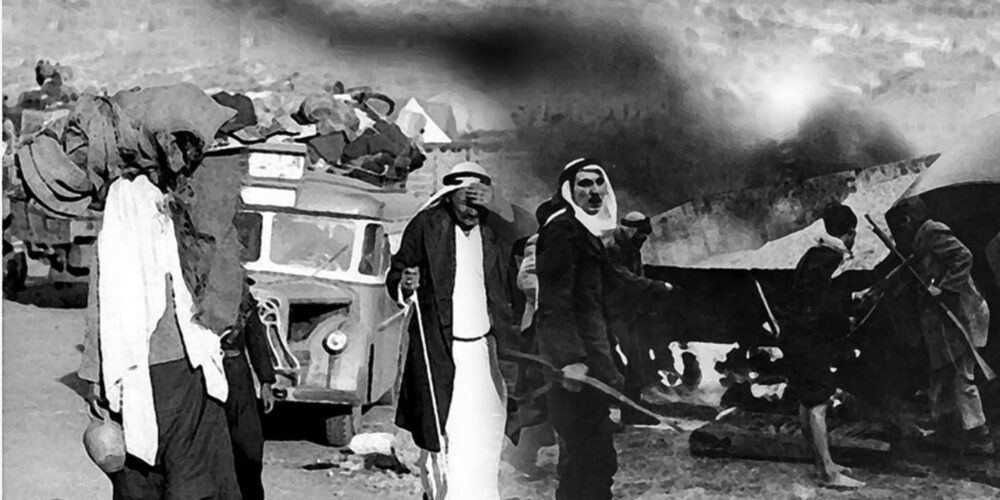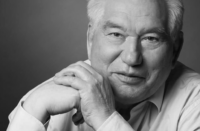■ This is the first in a short series of articles dealing with the Middle East
Palestine was first occupied by the Ottoman Empire, but after the break-up of that entity in the First World War it was transferred to the British Empire under the Sykes-Picot agreement, which divided up the Middle East between Britain and France.
Theodor Herzl’s vision was for a Jewish state in this region. The only problem was it was already inhabited by an Arab population.
Following Herzl’s ideology, a wave of settlers flooded into the region after the war, with support by the British Mandate authorities. The British were fresh from uprisings in Iraq, Egypt and Ireland and faced discontent in India. They mistrusted the Arab populations and felt that Zionist settlers could prove a useful buffer.
Palestinian anger at their mistreatment led to the Great Arab Revolt of 1936–39, which began with a six-month general strike, brutally put down by the British.
This was the preparation for the future Israeli state as an important ally of imperialism. As Herzl put it, a Zionist state in Palestine would “form a part of a wall of defence for Europe in Asia, an outpost of civilisation against barbarism.” The Balfour Declaration of 1917 committed Britain to creating this state. It made no mention of the Arab inhabitants, who made up 95 per cent of the then population.
As we have often said, imperialism does not have friends, only interests. The British ruling class had no sympathy with the persecution of the Jewish people; for instance there was the Aliens Act (1905), which aimed to get Jewish people who were fleeing Tsarist persecution out of Britain. As Jewish people fled the tyranny of Nazi Germany from the 1930s, racist immigration laws in the United States and Britain meant that many were forced to flee to Palestine, despite many of them not supporting Zionism. For the racist imperialist states it was a way to kill two birds with the one stone.
In fact Jewish workers were among the most consistently left-wing in Britain and the United States. Exporting them to Palestine meant they were forced to become a reactionary buffer by imperialism.
Britain armed Zionist settlers to help them fend off the 1936 Revolt. In the 1940s, groups such as the Stern Gang, Haganah and Irgun launched a terrorist campaign, simultaneously with the start of ethnic cleansing of the Palestinians. A typical massacre was that of Dayr Yasin, where a hundred men, women and children were murdered by Zionist terrorists. Give one thing to the Israeli state: it has always been consistent.
By 1949, 720,000 Palestinians, out of a population of 1.3 million, were made refugees. They were given no right to return to their homes, many of which were demolished by the new Israeli state, created after the 1947 partition. The newly independent Arab states suffered a major defeat to the Israeli military, while the Israelis, with British and French support, had secured military superiority.
Jordan, a British ally, gave automatic citizenship to refugees from Palestine while it annexed the West Bank. This was less out of sympathy for Palestinians and more out of a need to gain legitimacy for the monarchy, with the new Palestinians becoming the majority of the population. The later betrayal by the monarchy of the Palestinians erupted in violence after Black September, 1970.
Because of the monarchy’s open dealings with the new Israeli state, the king was assassinated after visiting the al-Aqsa mosque in East Jerusalem. This forced the monarchy to take a more anti-Israel stance. After the Six-Day War of 1967, Israel took over East Jerusalem and the West Bank. In Jerusalem, armed Zionist settlers forcibly took over Palestinian lands and most recently in Sheikh Jarrah, which started the most recent rounds of Israeli aggression.
In Gulf countries, Palestinians had a right to stay only if they were employed, in effect becoming a source of cheap labour. In Lebanon, which came under the French mandate, the sectarian system that was devised gave prominence to the Maronite Christians. The Palestinians were relegated to refugee camps—which also allowed them to become among the most educated in the Middle East, despite not having their own state. Their alliance with Lebanese leftists would mean that Lebanon would become a victim of Israeli intervention, where fascist groups, such as the Phalange, enjoyed Israeli support in their massacres of Palestinian refugees.
What is clear is that since its inception Israel has been an important ally of imperialism. Contrary to its propaganda of being encircled on all sides, the reality is that the surrounding Arab states are unable to tackle Israel, not to mention unwilling, because of their own client relationship with, first, British and then US imperialism.






